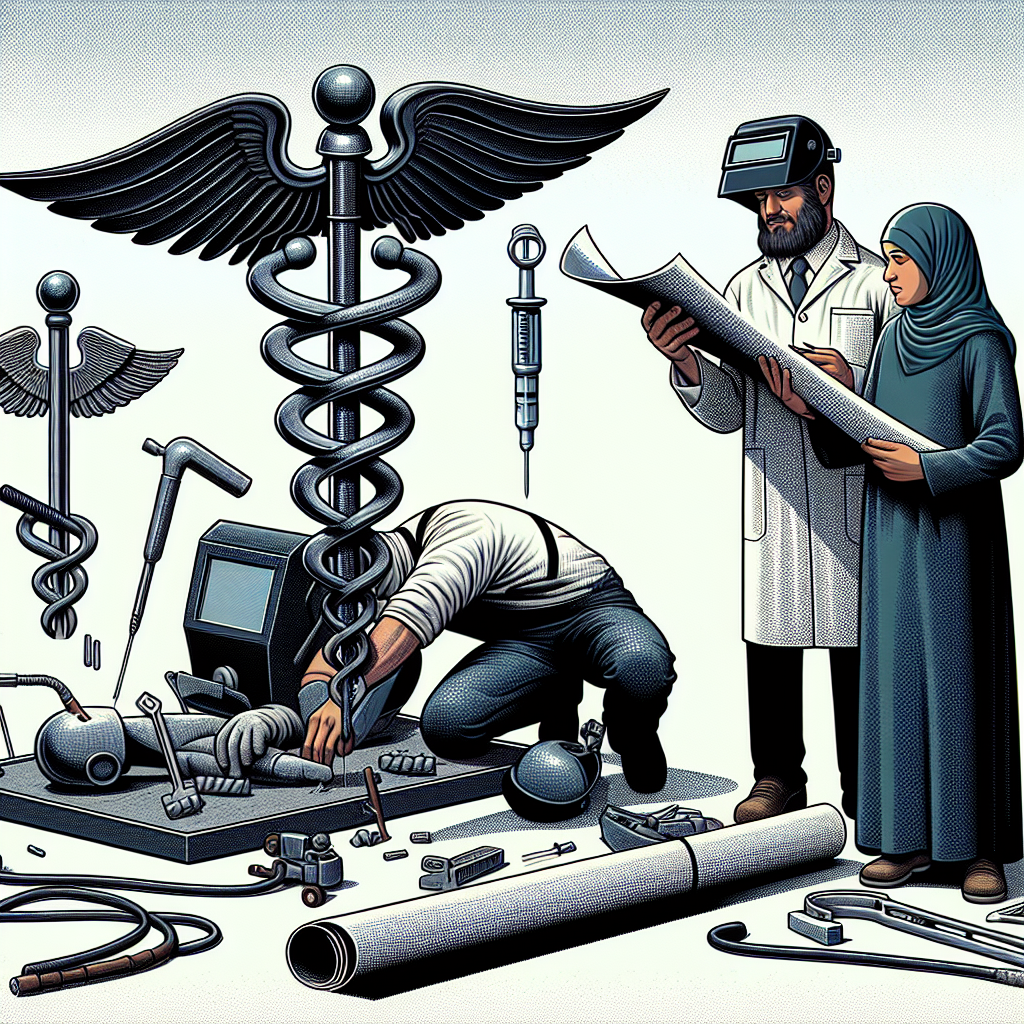Filed under Health Insurance on
Understanding Employer-Provided Health Insurance Coverage

In today's complex healthcare landscape, navigating the intricacies of insurance coverage can often feel overwhelming. One of the most critical components of the benefits package employers offer is health insurance. Understanding employer-provided health insurance coverage is essential not only for making informed healthcare decisions but also for ensuring that you maximize the benefits available to you.
The Basics of Employer-Provided Health Insurance
Employer-provided health insurance, often referred to as group health insurance, is a policy purchased by an employer for the benefit of its employees. Depending on the package offered, it may also include coverage for dependents. Such coverage generally comes with a financial contribution from the employer, making it a cost-effective option for employees compared to individual plans available in the market.
Benefits of Employer-Provided Health Insurance
There are several advantages to employer-provided health insurance:
- Cost Savings: Since larger groups are insured, premiums can be lower than individual plans. Additionally, employers often cover a portion of the premium, reducing the employee's out-of-pocket expenses.
- Tax Efficiency: Premiums paid by employers are usually tax-deductible as a business expense, which can mean more savings for both parties involved.
- Comprehensive Coverage: Employer plans frequently offer broader coverage options, including preventative care, prescriptions, dental, and vision.
- Automatic Enrollment: Employees automatically enroll during a company-specific open enrollment period, simplifying the insurance process.
A Real-Life Example
Consider Mary, who works for a mid-sized tech company. Her employer provides a health insurance policy that covers 75% of the premiums. Mary only pays the remaining 25%, which amounts to $150 monthly. Individual plans outside her employer's offerings would cost her three times as much for similar coverage. Additionally, because it's a group plan, she benefits from lower copays and access to a comprehensive network of healthcare providers.
Understanding Your Coverage
Terms to Know
- Premium: The amount paid for your health insurance plan, often shared between you and your employer.
- Deductible: The amount you pay before the insurance company starts covering expenses.
- Copayment: A fixed amount paid for a covered service, usually when receiving that service.
- Coinsurance: Your share of costs for a covered healthcare service, calculated as a percentage.
- Out-of-Pocket Maximum: The most you’ll pay during a policy period (usually one year) before your insurer pays 100% for covered essential health benefits.
Understanding these terms can help you make informed choices about your healthcare and manage your expenses efficiently. Keep in mind the specifics of your plan, as employer-provided health insurance can vary widely between companies.
Selecting the Right Plan
Choosing the best employer-provided health insurance plan requires a careful assessment of your healthcare needs. Consider the following:
- Review the range of plans offered and compare their coverage levels, premiums, deductibles, and out-of-pocket costs.
- Evaluate your typical healthcare needs, including any regular medications or ongoing treatments, to determine which plan aligns best.
- Consider whether the plan covers preferred doctors and facilities within its network.
- Assess ancillary benefits like dental, vision, and wellness programs that may be included.
- Check for Health Savings Account (HSA) or Flexible Spending Account (FSA) options available through your plan.
An informed decision today can save you money and stress tomorrow. Xia, an HR specialist at a large corporation, found that reviewing past medical expenses helped her choose a plan with a slightly higher premium but much lower out-of-pocket costs, saving her substantial amounts in unexpected expenses during the year.
Challenges and Considerations
Navigating Plan Changes
Employer-provided health insurance plans can change from year to year due to shifts in company policy, insurer offerings, or regulatory changes. It’s essential to stay informed each year during open enrollment to understand how these changes might affect you.
For example, a company might switch insurers or change the percentage they contribute to premiums. This could significantly alter your total costs, making it crucial to compare the new plan options against your needs annually.
Dependents and Family Plans
While employer-provided health insurance often extends to dependents, it’s essential to evaluate how this affects overall premiums and out-of-pocket costs. Gina, a marketing manager with two children, found it more economical to have separate dental insurance for her dependents due to her company plan’s high dental copayments.
Coordination of Benefits
If you or your spouse has another source of insurance, such as through a spouse's employer, understanding coordination of benefits can maximize coverage. It ensures that both insurance providers don’t pay more than the total amount of the claim.
Conclusion
Understanding employer-provided health insurance coverage is crucial for making informed decisions about your healthcare and financial well-being. By familiarizing yourself with key insurance terms, evaluating your medical needs, and staying informed about plan changes, you can optimize your health insurance benefits. Whether it's through cost savings, access to a broader network, or richer benefits, employer-provided health insurance remains a valuable component of employment compensation packages. Always analyze your options, seek professional advice if needed, and choose the plan that best fits your unique situation to ensure peace of mind and financial security.
FAQs
1. What happens if I leave my job? Will I lose my health insurance coverage?
If you leave your job, you'll lose your employer-provided health insurance. However, you may be eligible for COBRA, which allows you to continue your current coverage temporarily by paying the full premium yourself. Exploring individual plans on the health insurance marketplace is another option during this transition.
2. Can my employer change my health insurance benefits?
Yes, employers can change health insurance benefits, usually during the plan's renewal period or as part of annual open enrollment. Any changes should be communicated to employees, allowing you adequate time to review new options and adjust accordingly.
3. How does an employer determine the health insurance plans they offer?
Employers typically consider several factors, including the company's budget, the needs of their employee demographic, and market trends, when selecting health insurance plans. Feedback from employees may also be considered to ensure the plan meets various needs.
4. Is it better to use an employer-provided health insurance plan or shop for an individual plan?
Employer-provided plans generally offer cost savings due to employer contributions, lower premiums from group rates, and potentially more comprehensive coverage. However, if an individual plan better suits your specific health needs or provides preferred provider networks, it's worth considering.
5. Are part-time employees eligible for employer-provided health insurance?
Eligibility often depends on company policy. Some employers offer health insurance to part-time workers, but it may have different terms compared to full-time employees. It's best to consult your HR department to understand your options.





